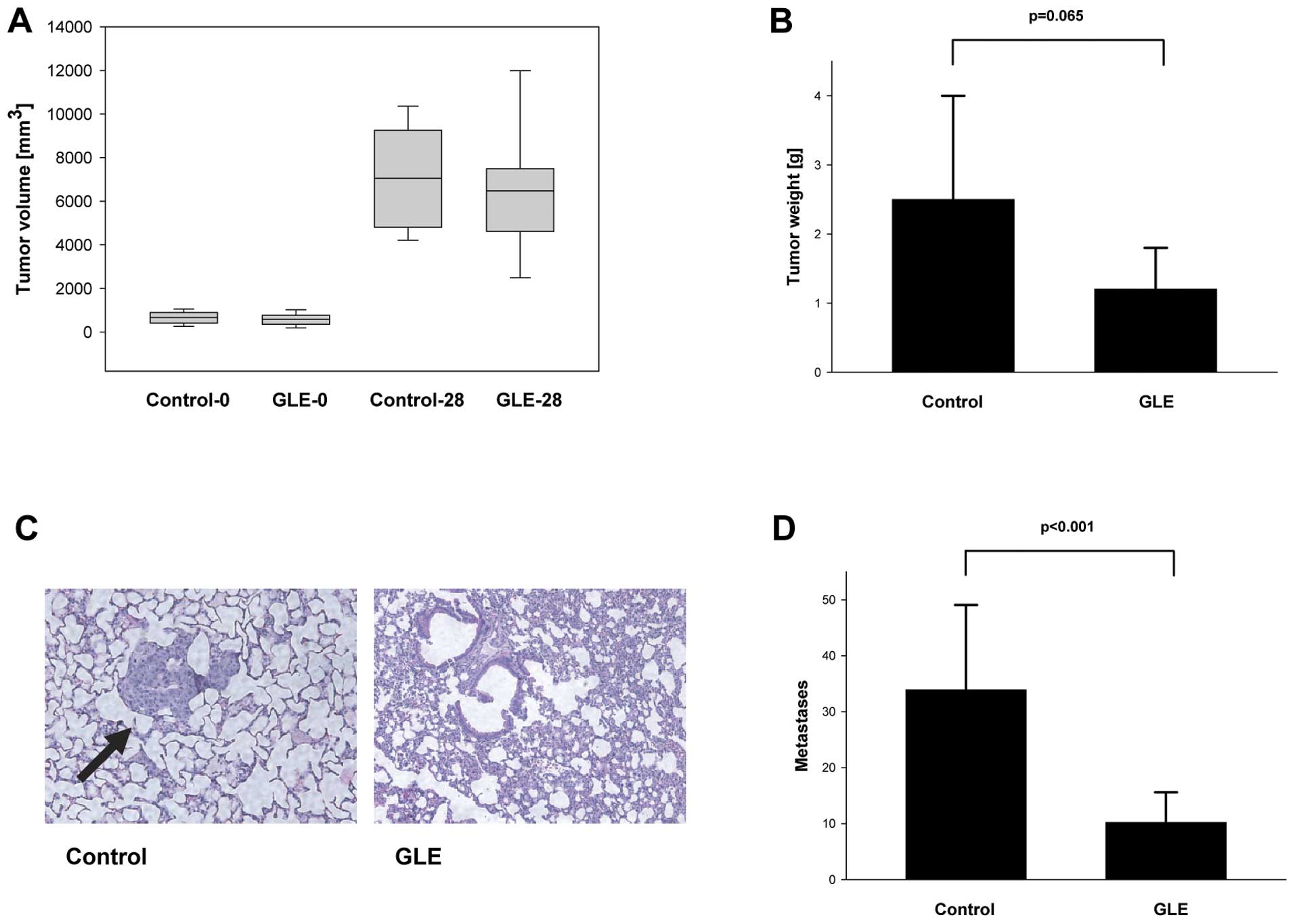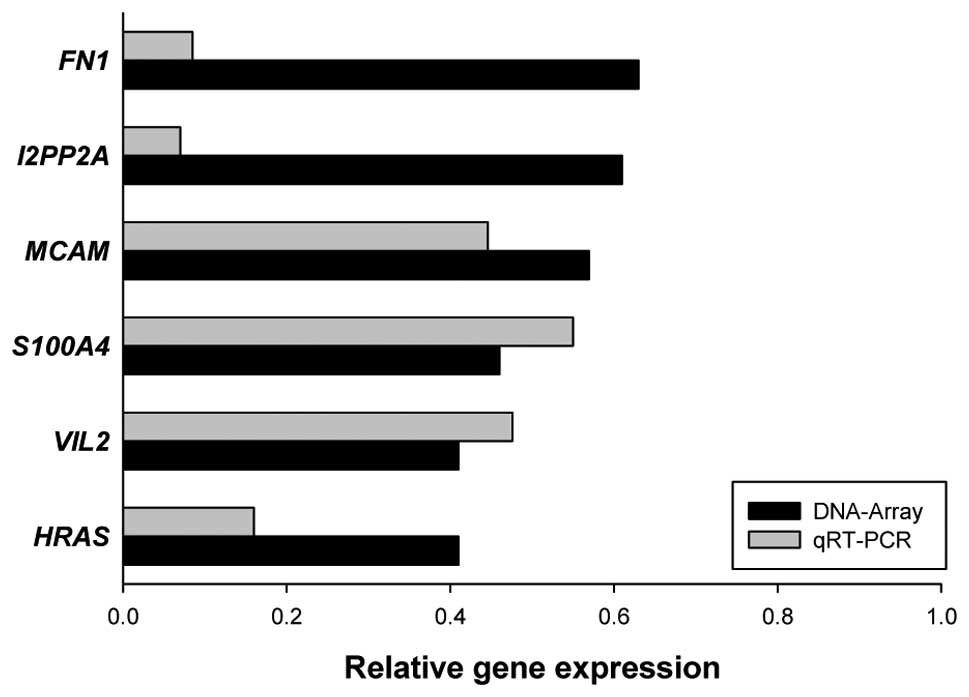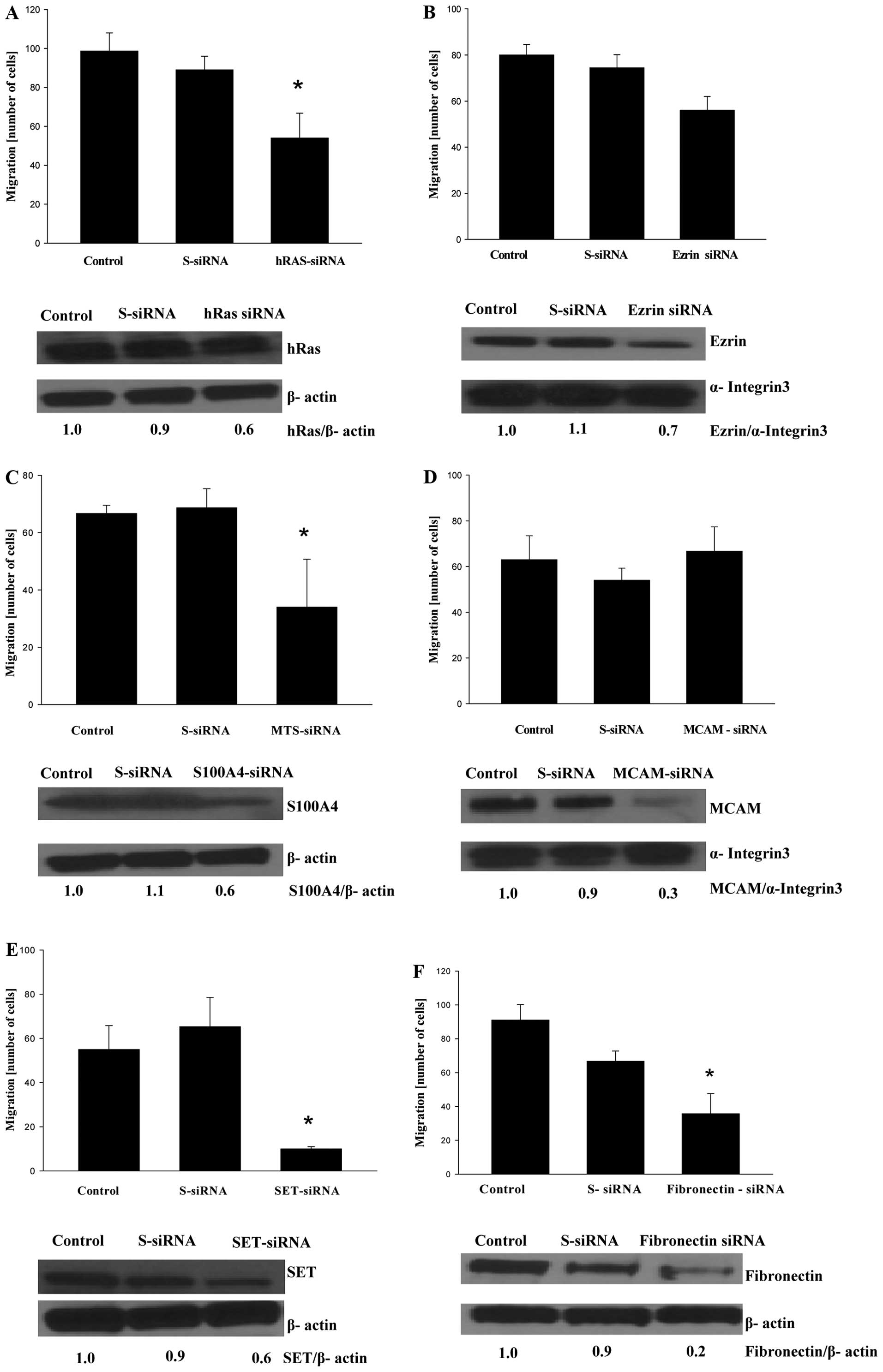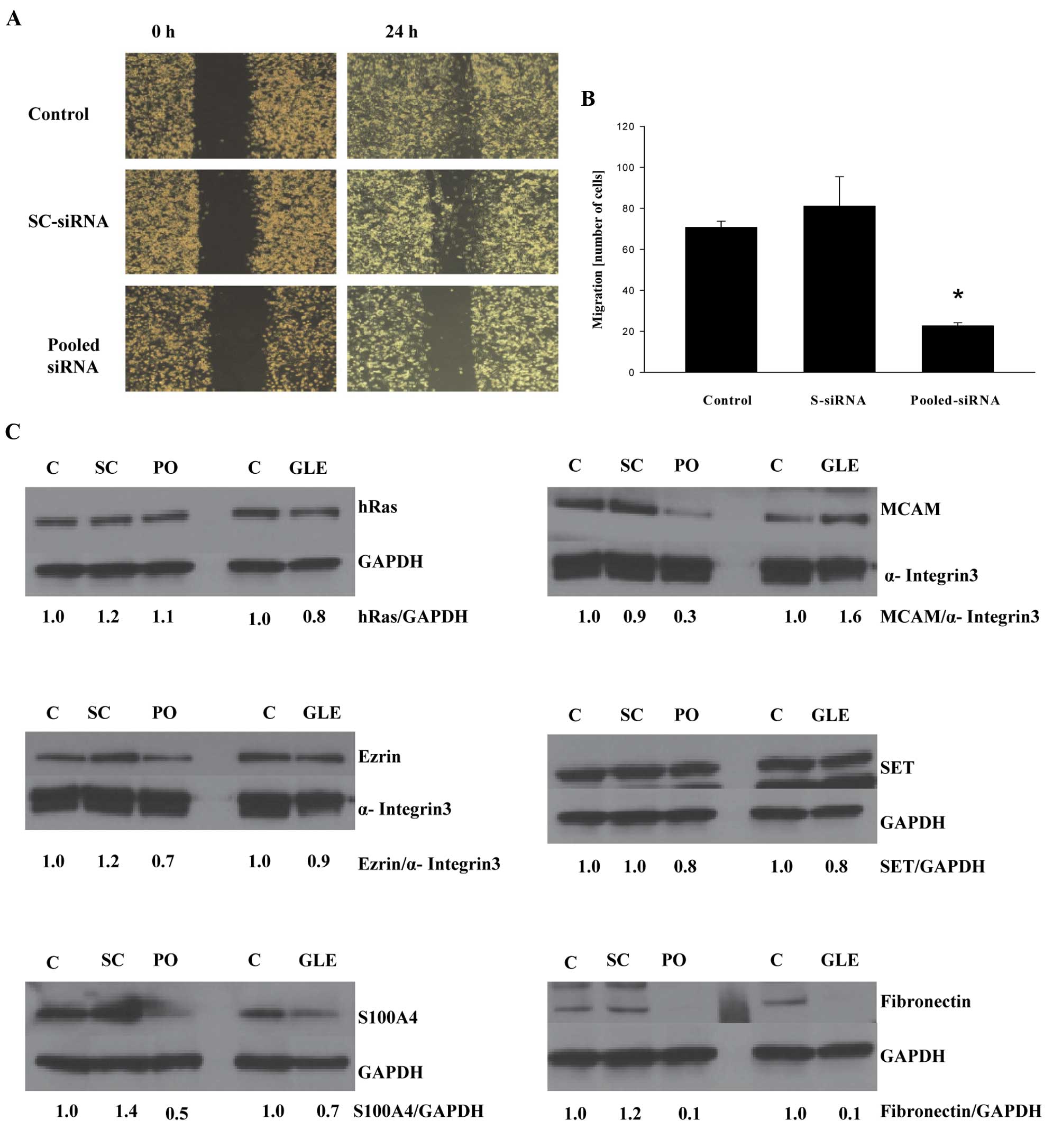|
1.
|
Jemal A, Bray F, Center MM, Ferlay J, Ward
E and Forman D: Global cancer statistics. CA Cancer J Clin.
61:69–90. 2011. View Article : Google Scholar
|
|
2.
|
Jemal A, Siegel R, Xu J and Ward E: Cancer
statistics, 2010. CA Cancer J Clin. 60:277–300. 2010. View Article : Google Scholar
|
|
3.
|
Christofori G: New signals from the
invasive front. Nature. 441:444–450. 2006. View Article : Google Scholar : PubMed/NCBI
|
|
4.
|
Gullett NP, Ruhul Amin AR, Bayraktar S, et
al: Cancer prevention with natural compounds. Semin Oncol.
37:258–281. 2010. View Article : Google Scholar : PubMed/NCBI
|
|
5.
|
Zhang M, Huang J, Xie X and Holman CD:
Dietary intakes of mushrooms and green tea combine to reduce the
risk of breast cancer in Chinese women. Int J Cancer.
124:1404–1408. 2009. View Article : Google Scholar : PubMed/NCBI
|
|
6.
|
Shin A, Kim J, Lim SY, Kim G, Sung MK, Lee
ES and Ro J: Dietary mushroom intake and the risk of breast cancer
based on hormone receptor status. Nutr Cancer. 62:476–483. 2010.
View Article : Google Scholar : PubMed/NCBI
|
|
7.
|
Wasser S: Reishi or Ling Zhi (Ganoderma
lucidum). Encyclopedia of Dietary Supplements. Coates PM,
Blackman MR, Cragg GM, Levine M, Moss J and White JD: Marcel
Dekker; New York, NY: pp. 603–622. 2005
|
|
8.
|
Thyagarajan A, Jiang J, Hopf A, Adamec J
and Sliva D: Inhibition of oxidative stress-induced invasiveness of
cancer cells by Ganoderma lucidum is mediated through the
suppression of interleukin-8 secretion. Int J Mol Med. 18:657–664.
2006.PubMed/NCBI
|
|
9.
|
Thyagarajan A, Zhu J and Sliva D: Combined
effect of green tea and Ganoderma lucidum on invasive
behavior of breast cancer cells. Int J Oncol. 30:963–969. 2007.
|
|
10.
|
Kimura Y, Taniguchi M and Baba K:
Antitumor and antimetastatic effects on liver of triterpenoid
fractions of Ganoderma lucidum: mechanism of action and
isolation of an active substance. Anticancer Res. 22:3309–3318.
2002.PubMed/NCBI
|
|
11.
|
Wang G, Zhao J, Liu J, Huang Y, Zhong JJ
and Tang W: Enhancement of IL-2 and IFN-gamma expression and NK
cells activity involved in the anti-tumor effect of ganoderic acid
Me in vivo. Int Immunopharmacol. 7:864–870. 2007. View Article : Google Scholar : PubMed/NCBI
|
|
12.
|
Chen NH, Liu JW and Zhong JJ: Ganoderic
acid T inhibits tumor invasion in vitro and in vivo
through inhibition of MMP expression. Pharmacol Rep. 62:150–163.
2010. View Article : Google Scholar : PubMed/NCBI
|
|
13.
|
Nonaka Y, Ishibashi H, Nakai M, Shibata H,
Kiso Y and Abe S: Effects of the antlered form of Ganoderma
lucidum on tumor growth and metastasis in
cyclophosphamide-treated mice. Biosci Biotechnol Biochem.
72:1399–1408. 2008.PubMed/NCBI
|
|
14.
|
Weng CJ, Chau CF, Yen GC, Liao JW, Chen DH
and Chen KD: Inhibitory effects of Ganoderma lucidum on
tumorigenesis and metastasis of human hepatoma cells in cells and
animal models. J Agric Food Chem. 57:5049–5057. 2009.
|
|
15.
|
Dudhgaonkar S, Thyagarajan A and Sliva D:
Suppression of the inflammatory response by triterpenes isolated
from the mushroom Ganoderma lucidum. Int Immunopharmacol.
9:1272–1280. 2009. View Article : Google Scholar : PubMed/NCBI
|
|
16.
|
Sweeney CJ, Mehrotra S, Sadaria MR, et al:
The sesquiterpene lactone parthenolide in combination with
docetaxel reduces metastasis and improves survival in a xenograft
model of breast cancer. Mol Cancer Ther. 4:1004–1012. 2005.
View Article : Google Scholar : PubMed/NCBI
|
|
17.
|
Sliva D, Mason R, Xiao H and English D:
Enhancement of the migration of metastatic human breast cancer
cells by phosphatidic acid. Biochem Biophys Res Commun.
268:471–479. 2000. View Article : Google Scholar : PubMed/NCBI
|
|
18.
|
Moon A, Kim MS, Kim TG, Kim SH, Kim HE,
Chen YQ and Kim HR: H-ras, But not N-ras, induces an invasive
phenotype in human breast epithelial cells: a role for MMP-2 in the
H-ras-induced invasive phenotype. Int J Cancer. 85:176–181. 2000.
View Article : Google Scholar : PubMed/NCBI
|
|
19.
|
Li Q, Wu M, Wang H, Xu G, et al: Ezrin
silencing by small hairpin RNA reverses metastatic behaviors of
human breast cancer cells. Cancer Lett. 261:55–63. 2008. View Article : Google Scholar : PubMed/NCBI
|
|
20.
|
Wang Z and Griffin M: The role of TG2 in
regulating S100A4-mediated mammary tumour cell migration. PLoS One.
8:e570172013. View Article : Google Scholar : PubMed/NCBI
|
|
21.
|
Wang L, Wang X, Liang Y, Diao X and Chen
Q: S100A4 promotes invasion and angiogenesis in breast cancer
MDA-MB-231 cells by upregulating matrix metalloproteinase-13. Acta
Biochim Pol. 59:593–598. 2012.PubMed/NCBI
|
|
22.
|
Shih IM: The role of CD146 (Mel-CAM) in
biology and pathology. J Pathol. 189:4–11. 1999. View Article : Google Scholar : PubMed/NCBI
|
|
23.
|
Zabouo G, Imbert AM, Jacquemier J, et al:
CD146 expression is associated with a poor prognosis in human
breast tumors and with enhanced motility in breast cancer cell
lines. Breast Cancer Res. 11:R12009. View Article : Google Scholar : PubMed/NCBI
|
|
24.
|
Zeng GF, Cai SX and Wu GJ: Up-regulation
of METCAM/MUC18 promotes motility, invasion, and tumorigenesis of
human breast cancer cells. BMC Cancer. 11:1132011. View Article : Google Scholar : PubMed/NCBI
|
|
25.
|
Yeh E, Cunningham M, Arnold H, et al: A
signalling pathway controlling c-Myc degradation that impacts
oncogenic transformation of human cells. Nat Cell Biol. 6:308–318.
2004. View Article : Google Scholar : PubMed/NCBI
|
|
26.
|
Salas A, Ponnusamy S, Senkal CE, et al:
Sphingosine kinase-1 and sphingosine-1 phosphate receptor 2 mediate
Bcr-Abl1 stability and drug resistance by modulation of protein
phosphatase 2A. Blood. 117:5941–5952. 2011. View Article : Google Scholar : PubMed/NCBI
|
|
27.
|
Saddoughi SA, Gencer S, Peterson YK, et
al: Sphingosine analogue drug FTY720 targets I2PP2A/SET and
mediates lung tumour suppression via activation of
PP2A-RIPK1-dependent necroptosis. EMBO Mol Med. 5:105–121. 2013.
View Article : Google Scholar : PubMed/NCBI
|
|
28.
|
Pankov R and Yamada KM: Fibronectin at a
glance. J Cell Sci. 115:3861–3863. 2002. View Article : Google Scholar : PubMed/NCBI
|
|
29.
|
Soikkeli J, Podlasz P, Yin M, et al:
Metastatic outgrowth encompasses COL-I, FN1, and POSTN
up-regulation and assembly to fibrillar networks regulating cell
adhesion, migration, and growth. Am J Pathol. 177:387–403. 2010.
View Article : Google Scholar : PubMed/NCBI
|
|
30.
|
Minn AJ, Gupta GP, Siegel PM, et al: Genes
that mediate breast cancer metastasis to lung. Nature. 436:518–524.
2005. View Article : Google Scholar : PubMed/NCBI
|


















